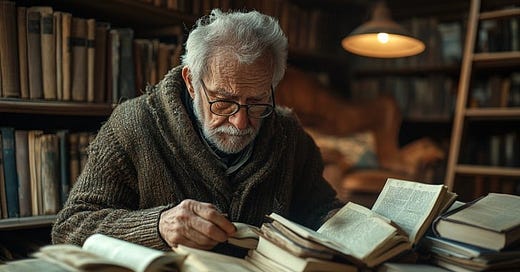For each the past few years, I have set a personal goal of reading 75 books. I succeeded in 2022 and 2023, and the jury is still out on whether I’ll hit the target in 2024. (I hit 68 yesterday.) I do…
Keep reading with a 7-day free trial
Subscribe to The Lifelong Learner to keep reading this post and get 7 days of free access to the full post archives.



